Convenience is killing us, and these decisions are the proof.

We’re not short on information. We know the climate is unraveling—faster than scientists predicted and with consequences that are no longer subtle. And still, we cling to habits that make it worse, all in the name of ease. It’s not just corporations dumping oil or billionaires flying private. It’s what we toss in the trash, how we get to work, what we eat, and how we shop. These choices don’t seem world-ending on their own, but stacked together, they form a pattern of denial so deep it’s almost impressive.
We keep making the same mistakes even when we know better—because convenience is addictive, and change feels hard. But let’s be real: some of these decisions are just plain stupid. Not clueless, not accidental—stupid. If we want a future that doesn’t burn, flood, or choke us out, it’s time to call out what’s not working. Starting with these 12 everyday choices.
1. That five-minute drive is wrecking more than your mileage.

It’s easy to justify—just a quick drive to the store or a friend’s place. But those tiny trips are some of the worst for emissions. Cold engines run less efficiently, and your car burns more fuel per mile. Add in idling, traffic, and the weight of your vehicle, and that short errand turns into a mini carbon bomb.
Multiply it by millions of drivers, and it’s a major reason our cities are smog-choked messes. According to writers for the U.S. Department of Energy, short trips of 3 to 4 miles can reduce a conventional gasoline vehicle’s fuel economy by as much as 24% in cold weather, due to inefficient engine operation and increased emissions during these brief drives.
Walking isn’t about martyrdom—it’s about making the smarter, saner choice. The air gets cleaner. Your heart gets stronger. And suddenly, the street becomes part of your life instead of something you speed past. You don’t need to sell your car. But when you’re driving somewhere your legs could take you in ten minutes or less? That’s not convenience. That’s just planetary self-sabotage.
2. Still buying bottled water? That’s straight-up embarrassing.

If your tap is safe and you’re still buying plastic bottles, it’s not hygiene—it’s habit. Bottled water is often just filtered tap in fancy packaging, marked up hundreds of times. It guzzles oil during production, takes energy to transport, and usually ends up in a landfill or floating in the ocean. For something we can get nearly free, it sure creates a lot of damage. Per researchers for the Natural Resources Defense Council (NRDC), producing a single liter of bottled water can require three to four liters of water, making the process highly inefficien
And no, those “eco-friendly” labels don’t let you off the hook. It’s still plastic. It still contributes to a crisis. Reusable bottles exist for a reason—and so do water filters. You don’t need to give up convenience, just the delusion that buying a new bottle every time you’re thirsty makes sense. Because at this point, it’s not just wasteful. It’s climate denial in a designer label.
3. Fast fashion is cheap because the planet pays full price.
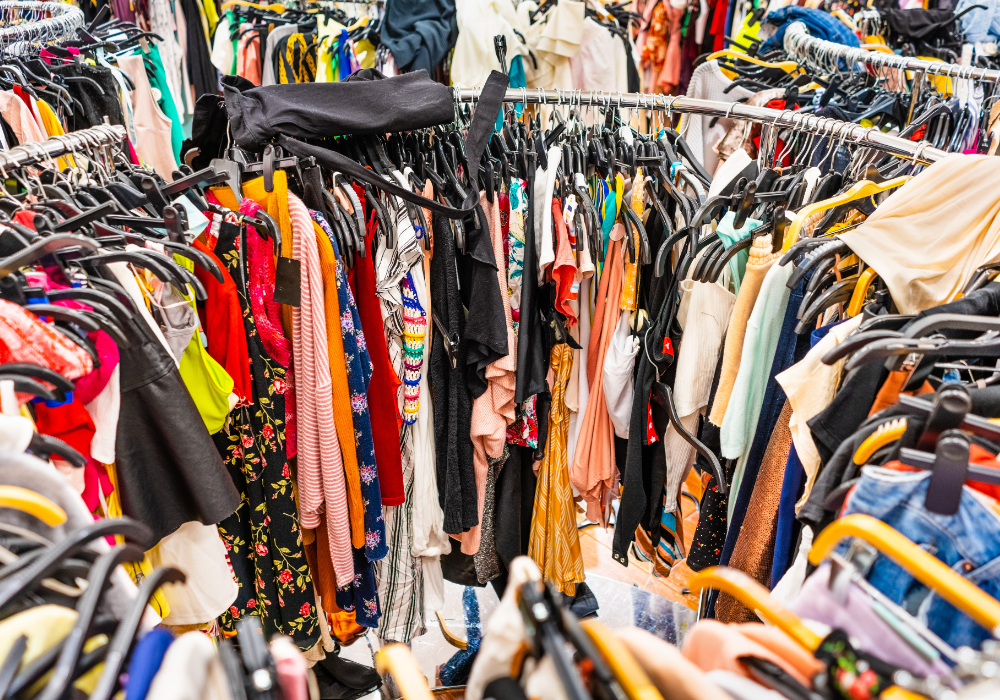
Those $10 jeans don’t stay cheap for long. The real cost is hidden—in the toxic dyes dumped into rivers, the sweatshops underpaying workers, and the fossil fuels burned to ship it all to your doorstep.
Fast fashion makes you feel trendy for a week, then dumps the fallout on the rest of the world. Most of it ends up in a landfill, barely worn and barely recyclable. As highlighted by United Nations Economic Commission for Europe (UNECE), the fashion industry is responsible for producing 20% of global wastewater and 10% of global carbon emissions.
The speed of style now outpaces common sense. We’re encouraged to treat clothes like disposable napkins, not investments. But there’s another way. Thrifting, swapping, and just wearing things more than once are all rebellion in the best way. Buying less doesn’t mean looking worse. It means refusing to let an outfit cost the Earth. And honestly, repeat outfits are hotter than climate collapse.
4. You left the lights on? Congratulations, you played yourself.
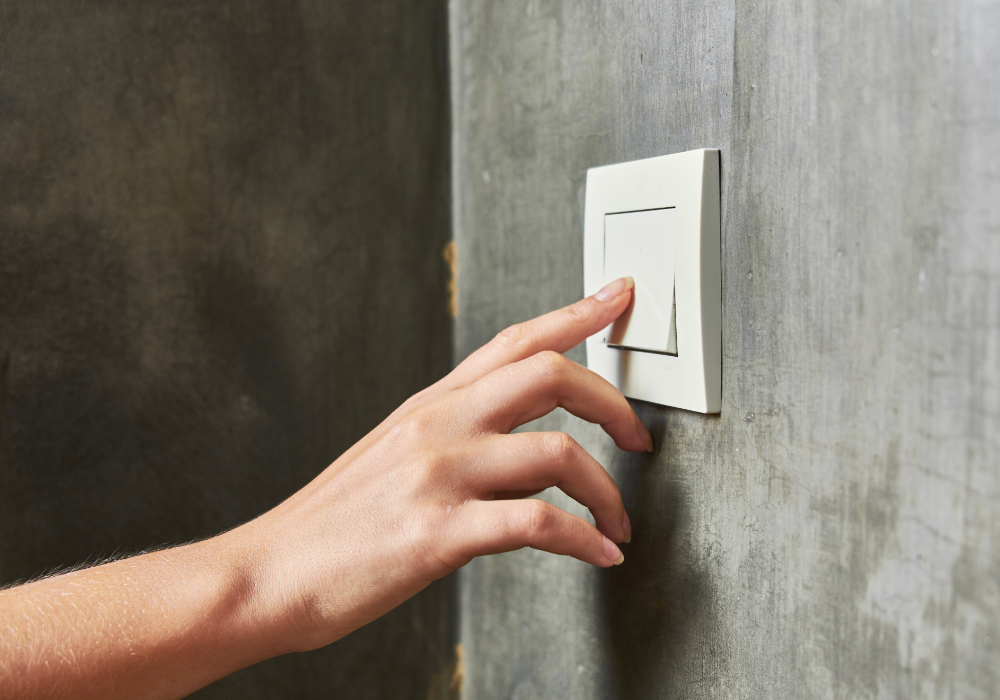
We’ve got smart tech, energy-saving bulbs, and all the tools to fix this—and yet millions of homes still glow like airport terminals while no one’s home. Leaving lights on isn’t a harmless quirk. It’s a constant, unnecessary drain. And it’s a perfect symbol of how casually we waste energy because we can’t be bothered to flip a switch.
Power doesn’t come from nowhere. In most places, it’s still generated by fossil fuels. So yeah, your kitchen light may not seem like a big deal—but scaled up, it absolutely is. You wouldn’t run a blender just for fun, so why keep the lights blazing in an empty room? It’s time to stop acting like electricity is infinite. Turn it off. Not because it saves pennies. Because it proves you’re paying attention.
5. Throwing out food might be your most wasteful habit.
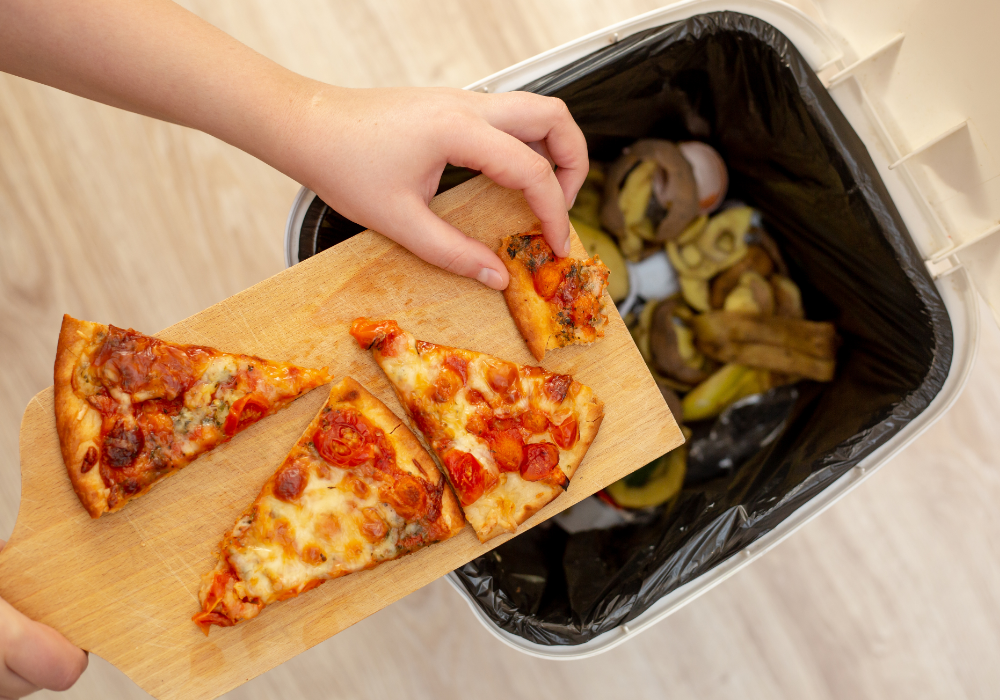
You bought the spinach with good intentions. Then it wilted, and now it’s in the trash. No big deal, right? Actually, it’s a huge deal. When food rots in landfills, it releases methane—a greenhouse gas way more potent than carbon dioxide. But the real crime isn’t just the methane. It’s the energy, water, labor, and land that went into producing that food—all wasted because we bought more than we needed.
The wild part? Most food waste happens at home, not on farms or in stores. Leftovers get ignored. Produce gets forgotten. And expiration dates? Often more of a suggestion than a rule.
Planning meals, storing things properly, and freezing extras isn’t rocket science—it’s just grown-up behavior. Wasting less food doesn’t require a lifestyle overhaul. It just takes awareness. And maybe checking the fridge before you impulse shop hungry.
6. That express delivery is costing more than shipping.

You wanted it fast, and now it’s on a plane, in a truck, racing to your door with a trail of carbon behind it. Two-day shipping doesn’t just get your package to you quicker—it multiplies emissions. Smaller, rushed shipments mean less efficiency, more packaging waste, and overworked logistics networks that burn through fuel like candy.
We act like speed is free, but someone always pays. Usually, it’s the planet. Slower shipping lets companies consolidate deliveries and use cleaner, more efficient transport options. It’s the same product either way—just with less environmental damage baked in. Waiting an extra day won’t kill you. But expecting the Earth to absorb your convenience forever? That might.
7. Blasting the heat or AC for an empty house is absurd.
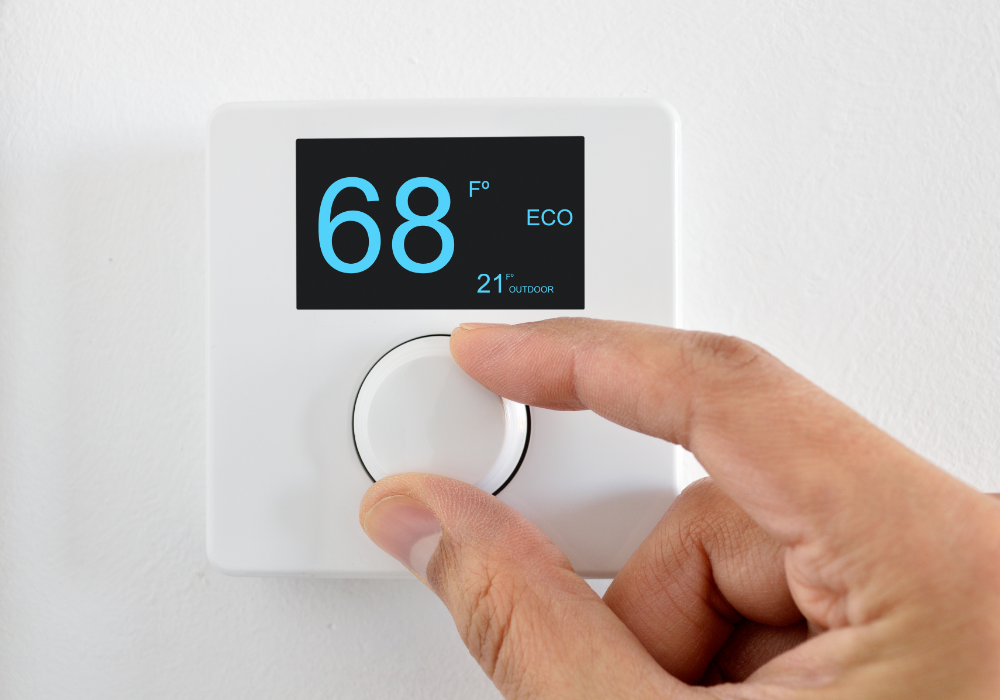
There’s comfort, and then there’s waste. Heating or cooling your home while you’re at work, on vacation, or asleep in another room is like leaving the faucet running just in case you get thirsty later. Energy use like this doesn’t just cost money—it adds to the demand on a power grid already stretched by climate extremes.
Smart thermostats exist for a reason. So do sweaters. So do fans. Adjusting the temperature based on when you’re actually home is one of the simplest, most effective ways to cut emissions. It doesn’t mean freezing in winter or sweating in summer. It means being intentional. You’re not a lizard that needs a heat lamp 24/7. Let your house rest when you’re not in it.
8. Skipping the bus just because it’s “not cool” is a bad look.
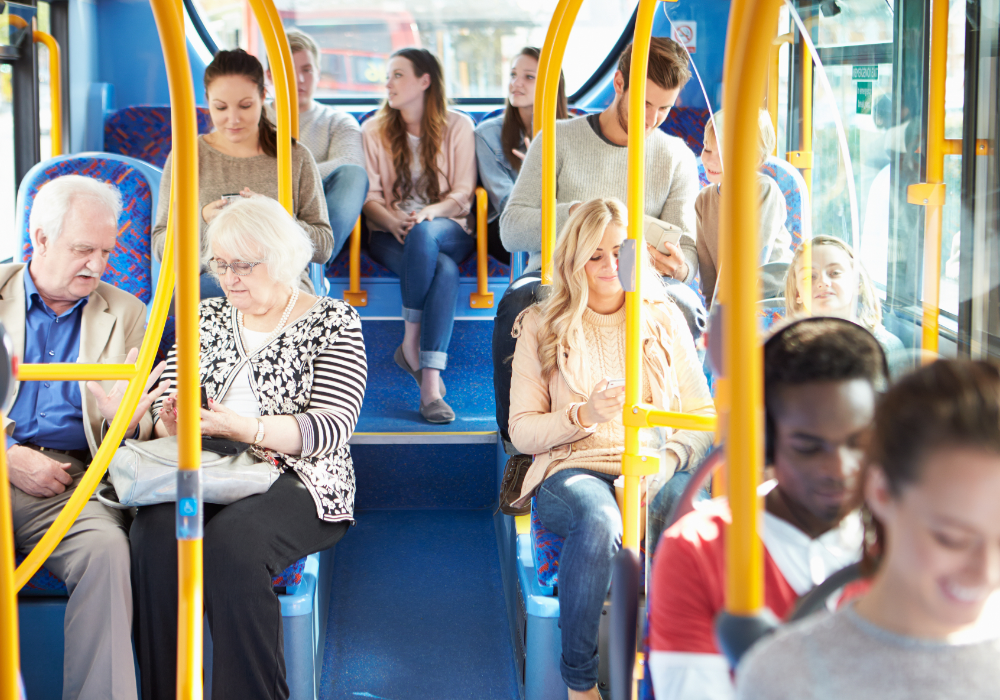
We get it—riding public transit doesn’t always scream glamour. But skipping it for your car (especially when you have a solid option) isn’t just wasteful—it’s actively making traffic, pollution, and climate chaos worse. Buses and trains move more people with less fuel. It’s one of the few climate tools that already exists and already works.
Still, we’ve turned car ownership into a status symbol and buses into a punchline. That mindset needs a serious reset. Choosing transit doesn’t mean you’re broke—it means you’re paying attention. Plus, you can read, scroll, nap, or stare out the window without risking a fender bender. Climate action doesn’t always come in flashy packages. Sometimes, it shows up on a metro schedule.
9. Cooking meat every night is a recipe for climate chaos.

No one’s saying you need to go full vegan overnight—but if beef is your default protein, your carbon footprint is off the charts. Cows produce massive amounts of methane, use tons of land and water, and require far more resources than plants or even other animals. That steak might taste great, but it comes with a side of planetary damage.
Swapping just a few meals a week for plant-based options isn’t radical—it’s responsible. And with the rise of great meat alternatives, flavorful veggie recipes, and legit cheese swaps, it’s easier than ever. You don’t need to ditch meat entirely. But treating it like the main character at every meal? That’s outdated and unsustainable. Your diet shouldn’t depend on a system that’s cooking the climate along with your dinner.
10. Tossing recyclables in the trash defeats the whole point.

You had one job: put the can in the recycling bin. But somehow, millions of perfectly recyclable items end up in landfills every day because people can’t be bothered—or don’t think it matters. Spoiler: it does. Recycling aluminum, for example, saves 95% of the energy it takes to make it from scratch. When we skip it, we waste materials and energy for no good reason.
Yes, recycling systems are flawed. But that’s not an excuse to do nothing. Rinse containers. Learn your city’s rules. And stop pretending the trash can is a catch-all. Every time you throw a bottle or box in the garbage, you’re tossing away a second chance at sustainability. And honestly? The Earth deserves better than lazy.
11. Acting like air travel doesn’t count is climate denial with extra legroom.

Let’s be honest—flying is a climate bomb. One long-haul flight can burn more fossil fuel per passenger than some people use in a year. Yet we treat it like a basic right: vacations, weekend getaways, quick work trips. All while ignoring the fact that high-altitude emissions are some of the worst for the planet.
No one’s asking you to swear off planes forever. But could you take one less flight this year? Combine trips? Take the train where it’s reasonable? Those changes matter. A lot. Acting like flights don’t count because they’re “essential” or “normal” is just denial in a window seat. You don’t have to give up travel—you just have to admit it has a cost.
12. Blaming corporations while doing nothing is peak hypocrisy.
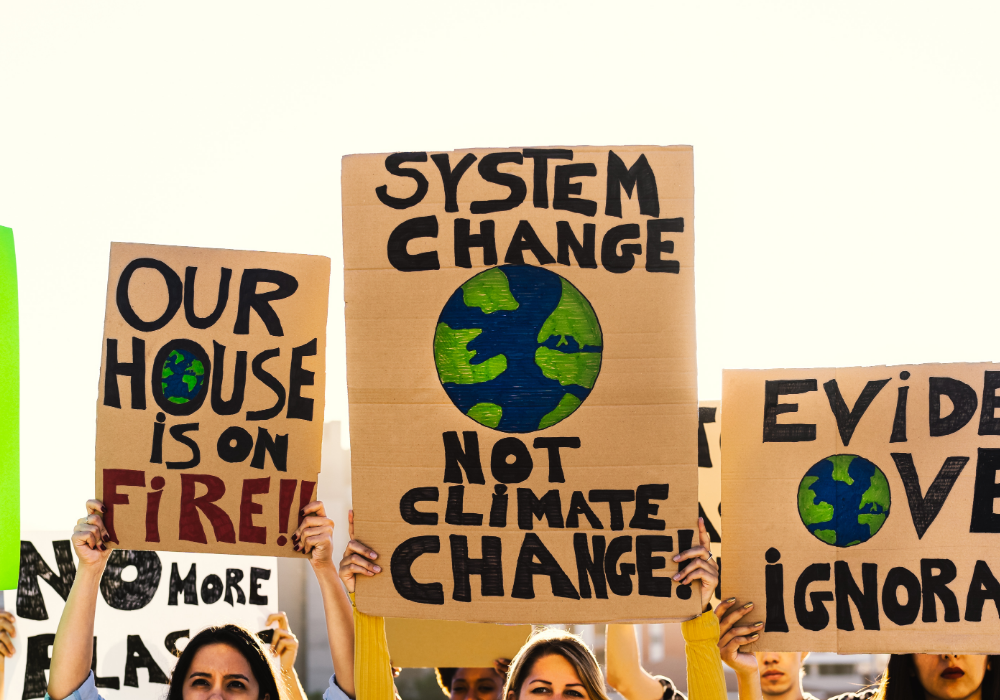
Yes, big oil and major polluters are the worst. Yes, their lobbying and emissions far outweigh any individual’s. But that doesn’t mean your choices don’t matter. Blaming the system while refusing to change your own habits is like yelling at your boss while slacking on the job. Both things can be true—and both matter.
Your personal actions send signals. They drive demand. They create momentum. Voting, boycotting, reusing, downsizing, showing up—they all ripple outward. The real hypocrisy isn’t caring too much—it’s pretending you’re powerless while scrolling past every solution. The system needs changing. But it needs you to stop being a spectator first.
